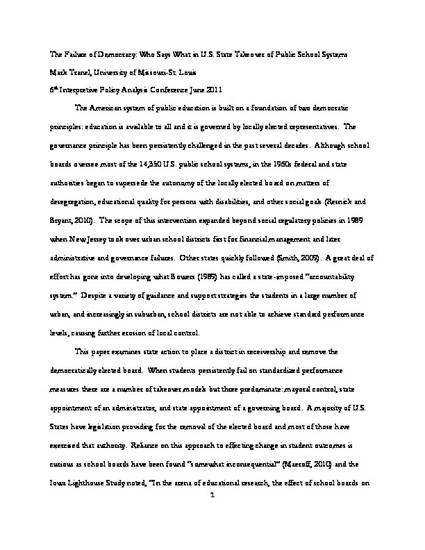
Presentation
The Failure of Democracy: Who Says What in U.S. State Takeover of Public School Systems
6th Interpretive Policy Analysis Conference
(2011)
Abstract
The American system of public education is built on a foundation of two democratic principles: education is available to all and it is governed by locally elected representatives. The governance principle has been persistently challenged in the past several decades. Although school boards oversee most of the 14,350 U.S. public school systems, in the 1960s federal and state authorities began to supersede the autonomy of the locally elected board on matters of desegregation, educational quality for persons with disabilities, and other social goals. The scope of this intervention expanded beyond social regulatory policies in 1989 when New Jersey took over urban school districts first for financial management and later administrative and governance failures. Other states quickly followed. A great deal of effort has gone into developing what Bowers has called a state-imposed “accountability system.” Despite a variety of guidance and support strategies the students in a large number of urban, and increasingly in suburban, school districts are not able to achieve standard performance levels, causing further erosion of local control.
Disciplines
Publication Date
June, 2011
Citation Information
Mark Tranel. "The Failure of Democracy: Who Says What in U.S. State Takeover of Public School Systems" 6th Interpretive Policy Analysis Conference (2011) Available at: http://works.bepress.com/mark-tranel/7/
